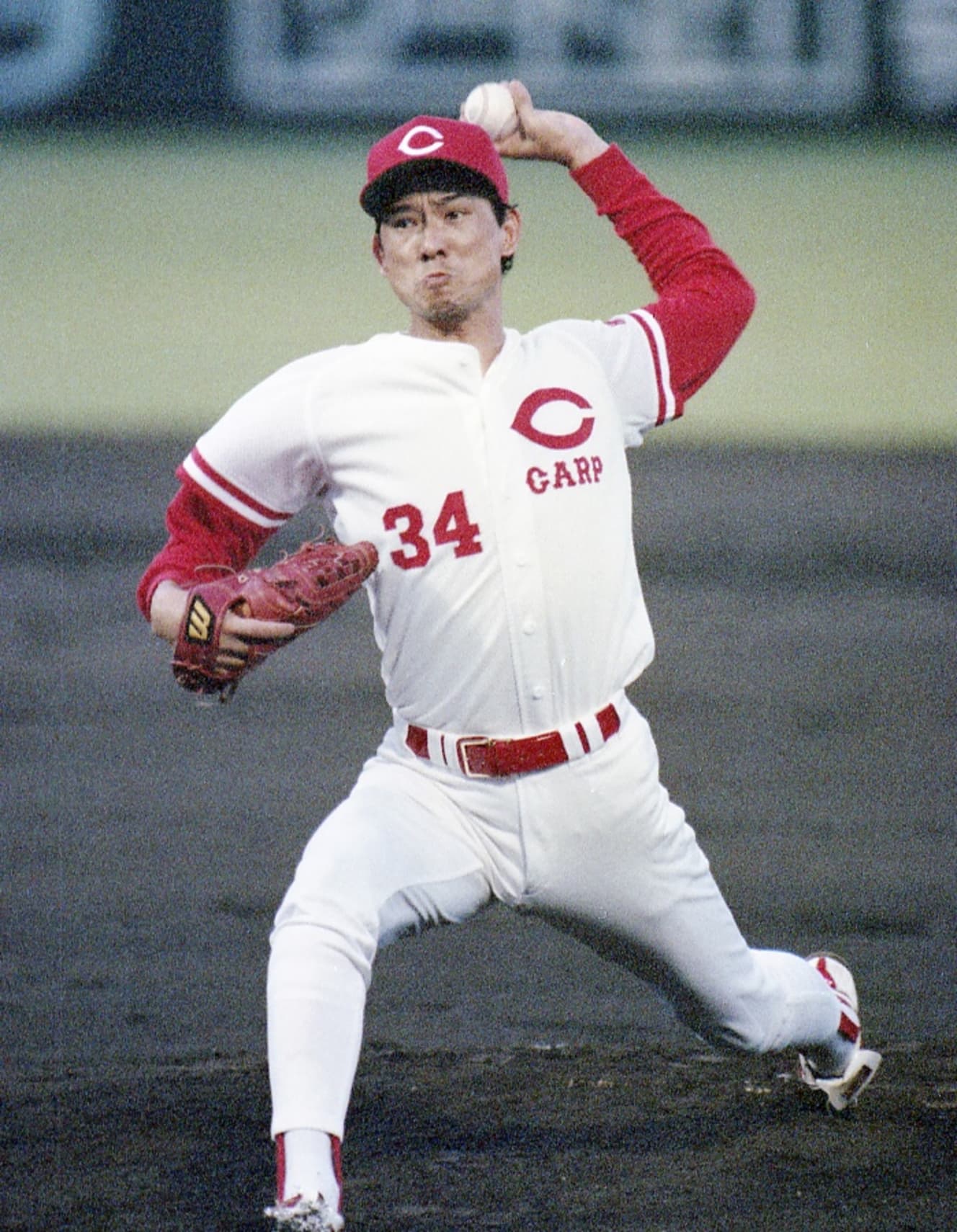Kazuhisa Kawaguchi, a famous pitcher, is busy growing rice… “I’m busier than when I was in Tokyo!
A famous pitcher who played for the Hiroshima and Giants for 18 years has now decided to pursue his dream of becoming a rice farmer, Tottori's PR ambassador, and baseball commentator.

It has been exactly one year since I moved to Tottori. I planted rice in May this year and harvested it for the first time in September. I was really happy when the little ears of rice came on. …… I took a picture of it and sent it to Tatsunori Hara, the manager who took care of me when I was a member of the Giants. I also ate the harvested rice, but I had no idea that rice, which used to just fill my stomach, could be so sweet.”
Kazuhisa Kawaguchi, 63, a left fielder for 18 years with the Hiroshima Giants and Hiroshima City, is the man with the sickle in his hand, his voice full of excitement. After retiring, Kawaguchi became a baseball commentator, and from 2011 he served as pitching coach for the Giants. For 26 years after moving to the Giants, he lived in Kawasaki City, Kanagawa Prefecture, and worked from his base in Tokyo, but last October he returned to his hometown of Tottori.
Two years ago in November, when my mother’s ashes were laid to rest in Tottori, she saw the rice field in front of the grave and said, ‘I want to grow rice here. Up until then, at every milestone in my life, my wife’s words have pushed me forward.’ When I obtained FA rights in 1994, my own intention was to stay in Hiroshima, but my wife’s father was suffering from cancer at the time, and I wanted to be close to him, so I decided to move to Hiroshima. In the later years of my career as a player, when I thought about retiring, she said to me, ‘You have worked so hard until now,’ and that was the deciding factor. This time, the rice fields she found in Tottori belonged to a relative of mine, and I thought it would be nice to get away from my life in Kanto, where I myself had become stuck in a rut.”
However, his wife, Junko (61), had no farming experience before moving to Tottori. Kawaguchi also helped his mother’s family, who were farmers, with rice planting and harvesting until he was 18 years old in Tottori. He may have won a total of 139 professional baseball games, but in the world of rice farming, he is a “newbie. With the advice of his older brother Hideaki Kimura, 66, who was groomed to be a farmer, he began growing rice while continuing his job as a baseball commentator.
He said, “Water management is important for growing rice. If you add too much water, the sun’s rays will warm the rice and cause the roots to wither. On his brother’s advice, he temporarily drained the water from the rice fields during the hot summer days, and when he re-filled the water a few days later, the rice grew surprisingly fast, and he repeated the process three or four times. When you put stress on the rice and give it a reward for overcoming the ordeal, it grows much faster. When I realized that the secret of raising rice and people is the same, I felt the depth of the experience. That’s why when I spend a lot of time in Tokyo for work, I get curious about rice paddies. ……
Kawaguchi’s home is a five-minute drive from Tottori Airport, and an hour and 20-minute flight will take him to Haneda Airport. When he was based in the Kanto region, he used to drive to work. Sometimes it took him three hours just to get to and from ZOZO Marine Stadium in Chiba. This summer, however, I stayed overnight in Tokyo on the day I finished my work as a commentator for a night game, and returned to Tottori on a 6:00 a.m. flight the next morning, but it was still only 8:00 a.m. I packed quickly and went back to the airport on the same day. Many days I would get ready immediately and stay in the rice paddies until dark.
I was appointed by Governor Shinji Hirai of Tottori Prefecture as an ambassador to promote immigration, settlement, and sports promotion, so in between baseball commentary and rice production, I also do PR work. The other day I had a photo shoot at the Tottori Sand Dunes. I am busier than when I am in Tokyo (laughs).”
He has found a new dream in Tottori.
Three years ago, at the same time as Ichiro, I became certified as an amateur instructor, so this summer I was allowed to do commentary for Tottori high school baseball for the first time. To be honest, the level of baseball in Tottori is not very high, so I want to raise the level. In order to do so, first of all, I want to develop good pitchers. When you have good pitchers, you have good hitters.
Since Kurayoshi-kita finished in the top four in the spring Koshien tournament in 1981, Tottori has failed to make even the top eight in the spring and summer tournaments until this year. Kawaguchi has returned to his hometown after his 60th birthday, and his eyes shine with the same radiance as they did on the mound during his playing days.



Photo by: Taisuke Nishida